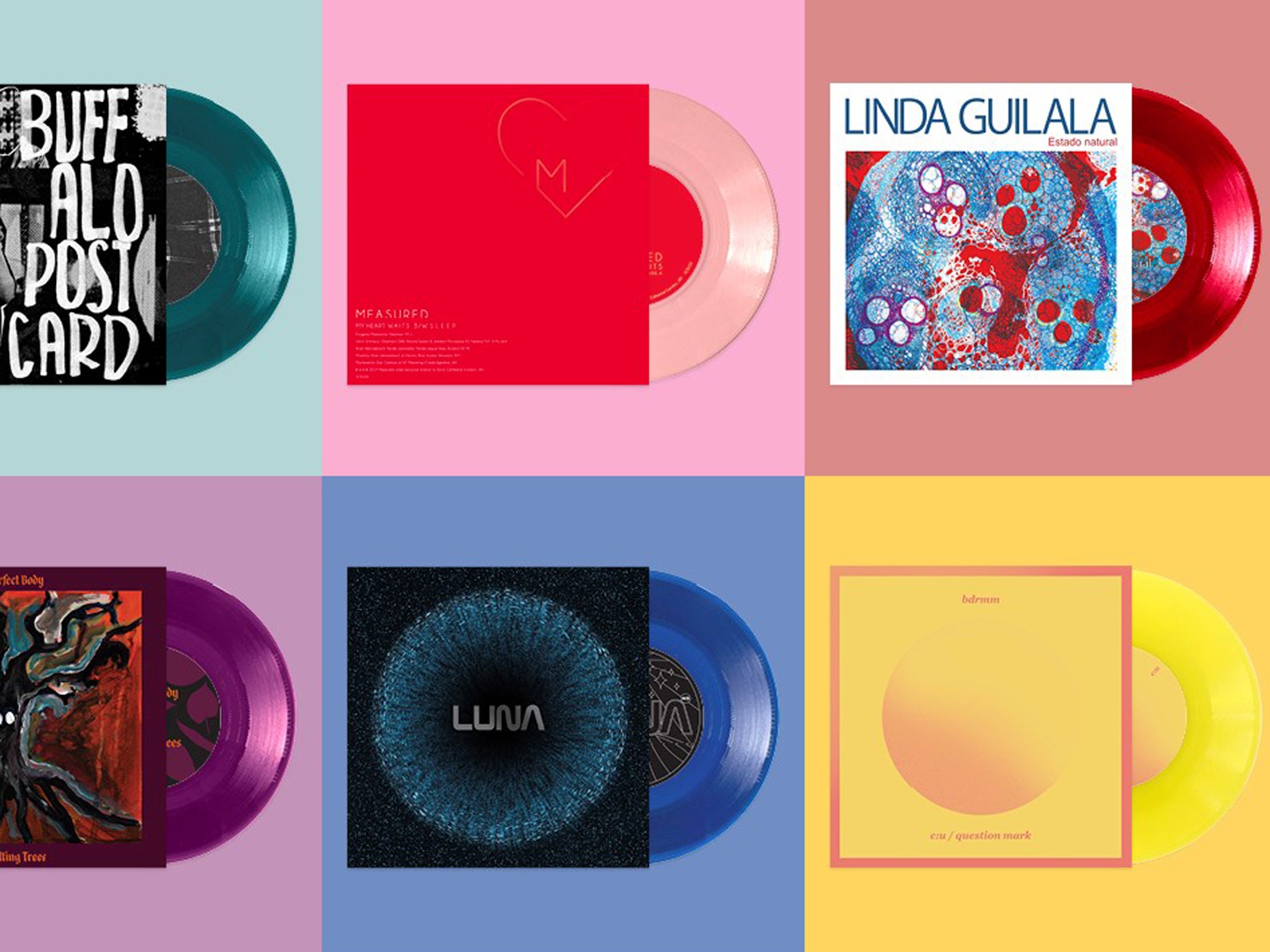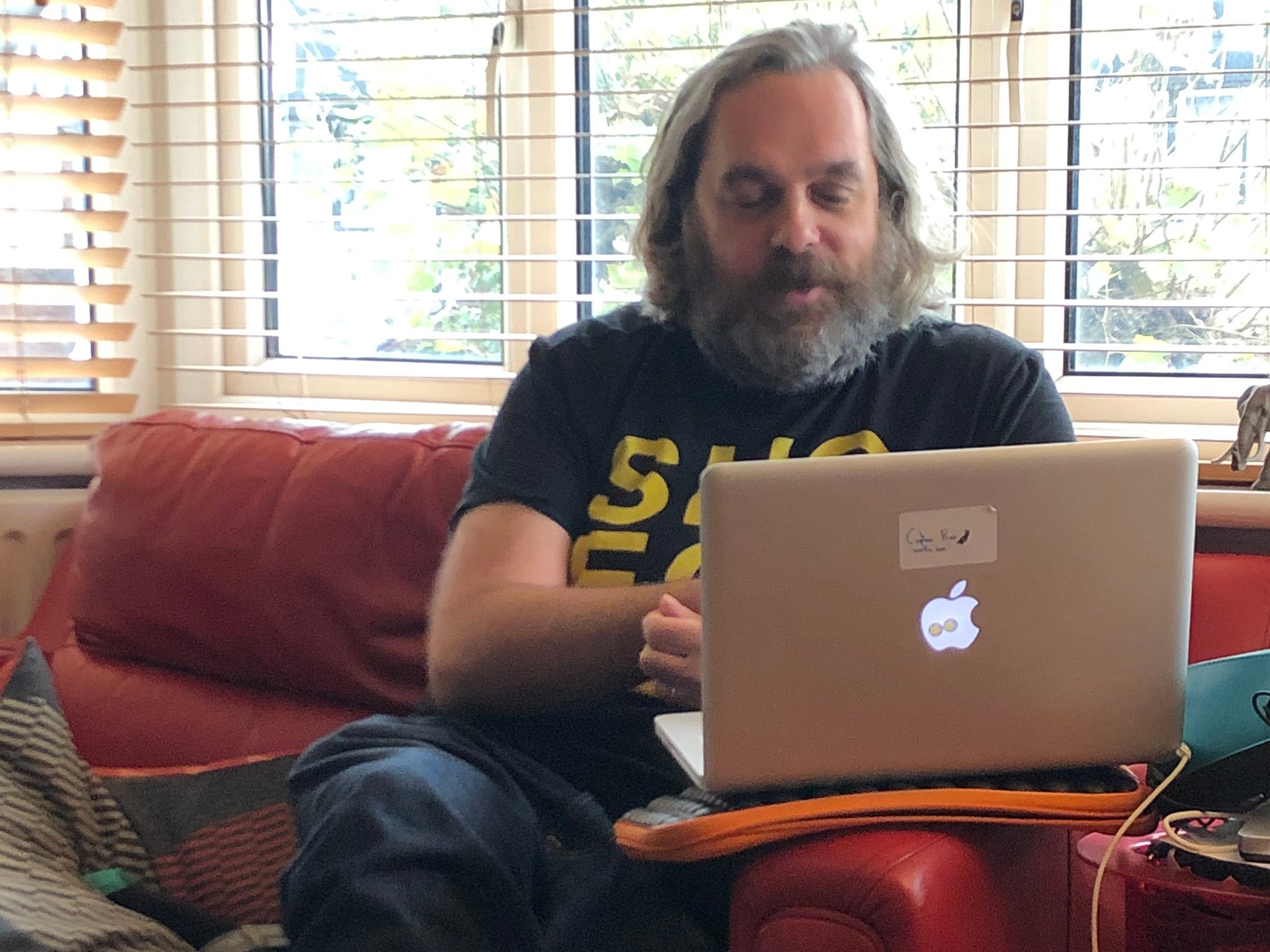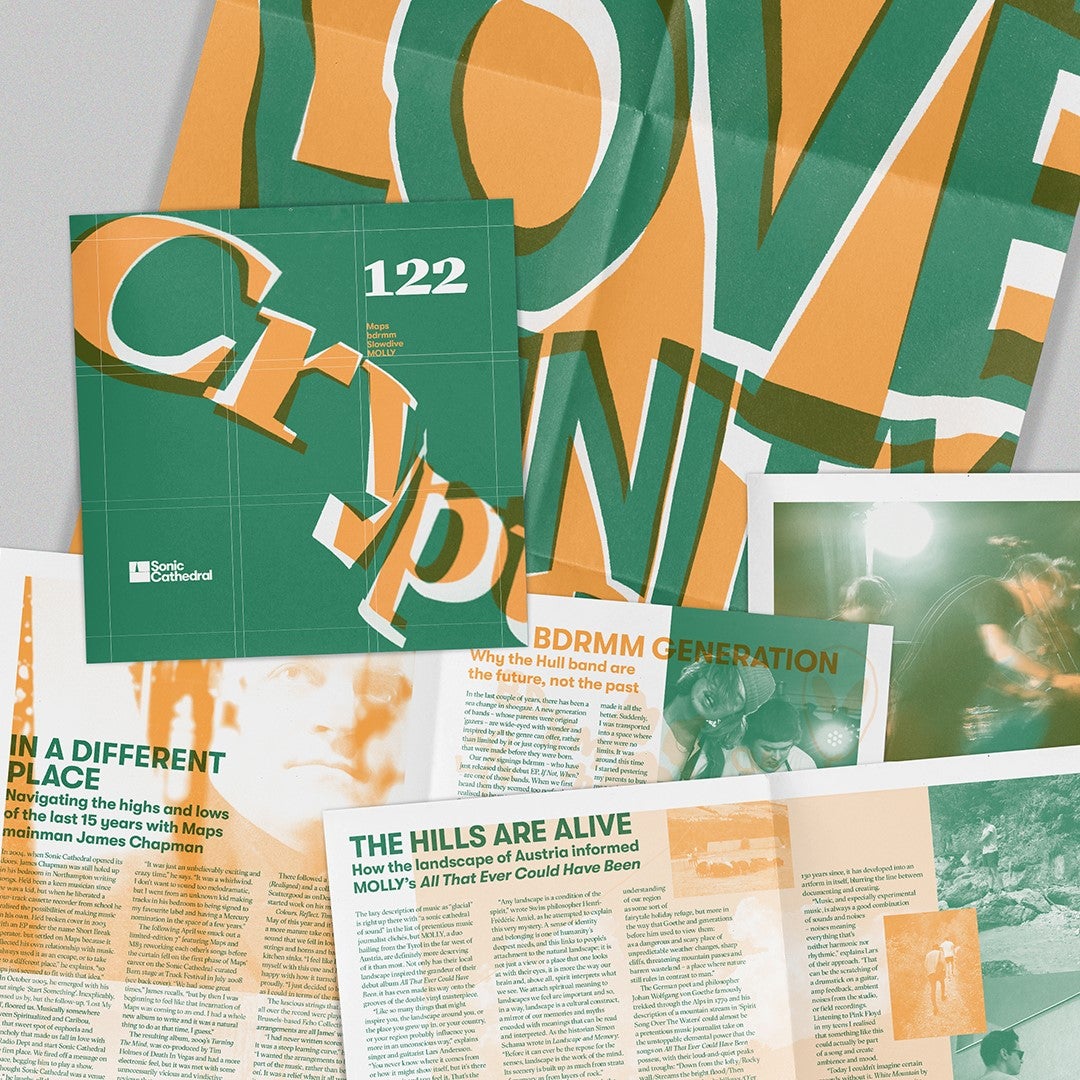Vinyl countdown: How music’s independents are caught in the path of Brexit’s wrecking ball
The shoegaze genre is having a moment again, thanks to independent label Sonic Cathedral. But not even its ethereal nature can stop the impending havoc threatening the music industry, James Moore discovers


I started panicking and thought this could be it. How could I carry on if prices suddenly skyrocket because there are tariffs on this and whatever, and things start getting stuck at Calais? I didn’t know whether it could survive. So I thought I’d go for it and release a load of vinyl. I thought, I’ll ask Slowdive and all my favourites – beg them to let me release something.”
For Nathaniel Cramp, the founder of Sonic Cathedral records, the first no-deal Brexit cliff edge back in March was horrifyingly real. It could have meant the end of a passion project that began with a one-off club night back in 2004 devoted to “shoegaze” music, which ultimately gave birth to a label that has played an important role in the revival of a genre that was savaged after a brief period of critical acclaim in the 1990s but has since undergone a reassessment and staged a revival.
Cramp decided that if the Cathedral’s final service was approaching it was going to make a sweet noise. Fortunately, Slowdive, arguably the genre’s reigning monarchs, said yes. So did a string of other artists. Thus was born the Sonic Cathedral Singles Club, modelled on one run by the legendary Sub Pop label, which launched Nirvana onto an unsuspecting world from its base in Seattle.
“Two of the singles were already in the works so I thought, why not? When I started the label I just did 7-inch singles. I did 11 randomly so I thought I’d do 11 for the club. The motivation was pure panic. If Brexit had happened in March it may have been a disaster. It may still be that.”
The club night he put on showed Cramp that there was still a market for the genre, so named because of its bands’ habit of staring at their shoes while playing live. “It brought out all these people in their Chapterhouse and their Catherine Wheel T shirts. They must have spent years in hiding,” he says. It then went on tour, with Ride frontman Mark Gardner. After the Nottingham date, Cramp asked the singer if he could release a single – without any idea of how he might do it. Gardner said yes.
Cramp was working as a sub-editor for the NME at the time, which meant he was plugged into the industry. But he still had to an awful lot to learn and he had to do it very quickly. Learn he did. The single went out and more releases followed. The label has since put out a steady stream of product thanks to Cramp becoming a music industry polyglot: he handles A&R, contracts, project management, finance, promotion, you name it.

He attracted some notoriety when, alongside Bristol provocateurs Howling Owl, he took a poke at Record Store Day with a joint release featuring Spectres and Lorelle Meets the Obsolete covering each other’s songs. One copy of the single was put out per day, every day, for the next year. They were left in various places for people to pick up for free. And all of them were. Cramp intended it to be a “lighthearted way of making a point that every day should be Record Store Day”. Something of a backlash followed – they were described as “misguided, entitled, wankers”. Cramp thinks his motivations were misinterpreted.

Still, it generated some much-needed publicity for the “second-best label” from Golders Green. The first, he says, would be Mute, best known for being the home of Depeche Mode, which also started out as a one-man outfit when it was founded by Daniel Miller. “The council has this regeneration thing going behind the high street. I wonder whether I should ask them for some space. That’d be handy. We could put a banner up.”
Shoegaze has a devoted following, but Cramp’s chances of finding a stadium act like the kings of electronic pop are not high. Sonic Cathedral is as much a cultural resource as it is a business and Cramp’s main challenge is covering his costs. “I pay for internet and stuff like that from it. I don’t take money out for a holiday or anything,” he says. “The idea behind the singles club was to get some cashflow going.”
It’s just ridiculous. They’d have to get visas, and then all the merchandise in each territory they would have to pay import duty on. In this day and age when bands don’t really tour with loads of money behind them the implications are awful
Unfortunately, the business will face another potential cliff edge if Boris Johnson and his Tories force through a no-deal Brexit by the back door after the general election. Their plans call for a trade deal to be negotiated and signed off within a matter of months. If this doesn’t happen – and the chances look slim that it will – Britain will be faced with potentially dire consequences. Many small businesses that import their raw materials from the continent like Sonic Cathedral will see their costs shoot up overnight through the imposition of tariffs that don’t currently exist. Then there are the challenges faced with getting product past a customs logjam in Kent.
“If we’re left without a Brexit deal and everything went haywire, whether you can still import coloured vinyl and stuff like that slips down the list of important things, especially when we’re worrying about food and medical supplies and stuff. Records don’t really matter,” he laments.

“The label is on such a small scale, it wouldn’t take much to knock things off balance and ruin it. I’m a sole trader so I haven’t got anything I can fall back on. If I can’t afford it, I can’t afford it, and it stops. And the problem is we just don’t know what’s coming. The company GZ Vinyl which presses our vinyl in the Czech Republic doesn’t know either.”
It isn’t just importing vinyl either, as Cramp is keen to point out. Tours play an important role in drawing attention to bands, and developing a following for them. That’s another of the under-reported stories of Brexit. There are very real fears of what the implications will be for live music.
“It’s just ridiculous. They’d have to get visas, and then all the merchandise in each territory they would have to pay import duty on. In this day and age, when bands don’t really tour with loads of money behind them, the implications are awful. For most smaller bands it’s a transit van, you know? And merchandise is an important part of covering costs. Going to Europe is geographically fairly easy for bands in the UK. If that suddenly becomes difficult everything shrinks down. It just becomes harder. The more you look, the more things become affected.”
This is a point recently taken up by Music UK, the trade body, which has called for an EU-wide music passport and for the EU’s copyright directive to be enshrined in UK law, among other things. Its recent report “Music by Numbers” said: “Losing freedom of movement of goods will see the introduction of an expensive and time-consuming carnet system. The government must ensure Brexit does not damage our world-leading industry.”

The report, featuring a foreword by culture secretary Nicky Morgan, found that the industry contributed £5.2bn to the UK economy in 2018, including £2.7bn of export revenues. Sonic Cathedral might only be a small part of that. But it is an important one nonetheless. It is through labels like this that acts get their music out and heard when they are just starting out; labels like this give voice to less mainstream artists.
Just as the label does, its artists have had to learn to improvise. When we meet, Cramp gives me a sneak preview of a remix from the Mexican duo Lorelle Meets the Obsolete, which will be part of a forthcoming release. He says he’s regularly astonished by artists’ organisational skills, which rival their impressive musical ones. “They are the most resourceful people ever. They’re Mexican and they really know how to look after themselves. I don’t now how easy it is as a Mexican to travel into America and tour America these days, but they do it.”
Yes, it’s not just Britain that is stuck with dismal right-wing politicians. The duo might yet have to exercise those skills and find a new label if our own dismal politicians have their way. Will some artists have to give up the ghost too? It’s a real danger. The average musician made £23,059 in 2018 – well below the national average of £29,832.
Brexit will have a strangling effect on people whose margins are wafer thin. Still, if leaving the EU has served as a graphic demonstration of everything that’s ugly about Britain, Cramp’s club means that at least a small consolation has emerged from it, proof that something beautiful can be birthed from its dark heart. Each release comes in a different colour vinyl and the sleeves have been put together with exaggerated care. Andy Bell’s “Plastic Bag” has been given its own miniature plastic bag, for example. Cramp is careful to stress that it’s a biodegradable one.
Today they have more than a bit of nostalgia about them and the price of producing them makes every one a passion project
Two of the offerings feature one long track over two sides, including Slowdive’s “Golden Hair”, one of those very rare live recordings that does a far better job of reproducing the power of the track than anything recorded in the studio could. Each release, however, has its charms. So did it make money? When I ask that, Cramp just laughs.
It’s easy to see how his margins get eaten away. For a start, 7-inch singles are ruinously expensive. They were once the most popular and important format, and the cheapest to buy. Even as their popularity dwindled, they still served as a shop window for artists and labels. Not in the age of streaming, however. Today they have more than a bit of nostalgia about them and the price of producing them makes every one a passion project. That’s true for the buyer too. Cramp sweetens the offer with several extras to his subscribers, including sweets, as a well as a fanzine, and entry to various promotional events.
“After the EU referendum and when they triggered Article 50, prices went up quite a bit. Vinyl is ridiculously expensive anyway, 7-inch singles in particular. That’s why the club was a bit of an irrational thing to do. They cost almost as much as a vinyl album. You see major label acts on double vinyl and it’s 45 quid and you think, ugh, I never really want to do that – but for 7 inches you’re faced with a hard reality. That Slowdive single, the cost per unit was probably £6, which is insane considering what you used to buy them for.”
The club has regrettably sold out, but there will still be some individual copies available either through Sonic Cathedral or via the bands themselves. “I’m going to sell a few, perhaps bung in a print,” says Cramp of the Slowdive release. “Liam Gallagher’s are £10 in just a white sleeve. It’s no disrespect to him, but if he can get away with a tenner…”

So will Sonic Cathedral issue another raft of seven inches if, when, another cliff edge looms in the New Year? “No!” says Cramp, looking faintly horrified at the prospect. You can see why. His front room is scattered with singles club ephemera, the records, and the cardboard postal containers, which caused the endeavour a bit of a hiccup because the supplier sold out of the ones Sonic Cathedral needed for its 7 inches.
Cramp serves as the primary carer for his son, who will start secondary school in the new year (his wife works in finance at Arsenal FC), and with the release date looming that meant no complaints from his father about him bingeing on Fortnite.
Given the pull that game has on boys of his age (I can testify to that, having one of my own), he probably wouldn’t mind a repeat. “He does complain that I don’t release anything he likes,” says Cramp. “With him going to secondary school I’ll probably have to get a proper job. It’d be really nice to make a living out of this because I do put a lot of work into it. I used to think that would be an end point but I don’t think it is now. Surviving is all you can aim for.”
You get the impression Cramp, who still works as a freelance sub-editor and stresses he’s available for hire, will give it everything to carry on if he can, if the government’s policies will allow him to. He’s already talking about “that panicky feeling” he gets when it comes to having something to release next year, even though, as he admits “something always turns up”. Artists and music have a way of finding their way to his door almost through osmosis.
He professes himself “proud” of what he’s managed to do. And he should be. It is to be hoped that he gets the chance to carry on.
Join our commenting forum
Join thought-provoking conversations, follow other Independent readers and see their replies
Comments